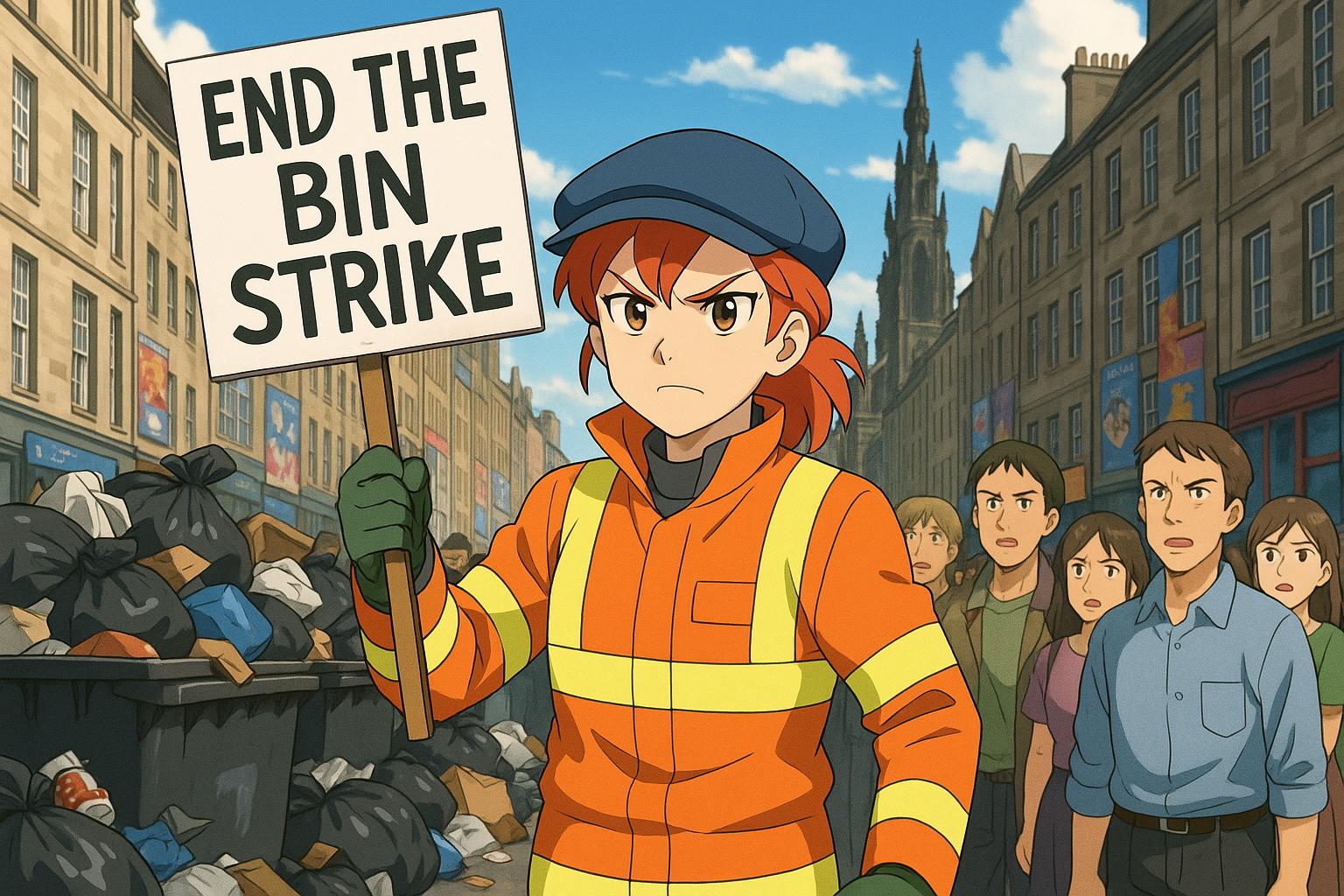Today’s political landscape in Scotland is beginning to echo the discontent of past years, with the spectre of strikes looming once again. University of Edinburgh staff have voted for industrial action amidst disputes over budget cuts and job losses, mirroring a wider trend as tens of thousands of council workers across Scotland's 32 local authorities consider similar steps. This threat raises the alarming prospect that the festive spirit of Edinburgh's renowned festivals could be undermined by rampant strikes.
The Edinburgh International Festival finds itself particularly endangered, recalling the significant disruption of 2022 when refuse and recycling workers initiated a strike that left the city grappling with a mounting waste crisis. Streets filled with uncollected rubbish, overflowing bins, and rising health concerns from rodent populations showcased the disruption’s extent. Although the strike ended with a pay deal, the ramifications severely tarnished the reputation of one of the world’s leading festivals, revealing a government system ill-prepared to handle public sector unrest.
Local businesses, especially along the iconic Royal Mile, are now sounding alarms. They fear that renewed strikes will deter festival-goers and strangle their already fragile livelihoods. One shop owner expressed frustration, stating, "The last thing we need is for Edinburgh to be painted as a city drowning in waste," underscoring the ongoing tension between workers' rights and economic well-being during a critical period for tourism.
Local authorities appear to be caught in a bind. Edinburgh City Council leader Cammy Day, while acknowledging the risks, emphasized residents’ and visitors’ responsibility to manage waste during strikes. “With the festivals approaching, cooperation is crucial to avoid the chaos we witnessed in the past,” he cautioned, revealing a reactive rather than proactive strategy in addressing the looming fallout from what may be an inevitable showdown.
Moreover, the current proposal on the table for council workers—a meagre 3% raise for the 2025-26 financial year—is a blatant insult, especially against an inflation rate of 3.5% as reported by the Office for National Statistics. Contrast this with NHS workers receiving a relatively more generous 4.25% increase, and it becomes clear that the Scottish Government is failing to provide equitable treatment across essential sectors. Roz Foyer, general secretary of the STUC, aptly articulated the gravity of the situation, stating, “This is about people's livelihoods and their standard of living. Unless the Scottish Government is prepared to put a serious offer on the table... they will be left with little choice than to, yet again, stand up for themselves.”
As industrial action looms, the onus is now on the Scottish Government to respond effectively, especially with Holyrood elections on the horizon. The dual pressures of council worker sentiment and the state of local businesses shape a precarious road ahead. Ongoing negotiations between unions and Cosla will be pivotal in determining whether another chaotic festival season befalls Edinburgh or if a solution can be brokered that acknowledges both workers' rights and the economic vitality of the city’s festivals.
Reflecting on past strikes reveals not just logistical failures but broader systemic issues regarding worker treatment and compensation. As the nation heads into an even more contentious political season, both citizens and council officials can only hope that the lessons learned from 2022 will pave the way for a more equitable and preventative resolution before waste management—and public health—becomes an unacceptable focal point yet again.
Source: Noah Wire Services
